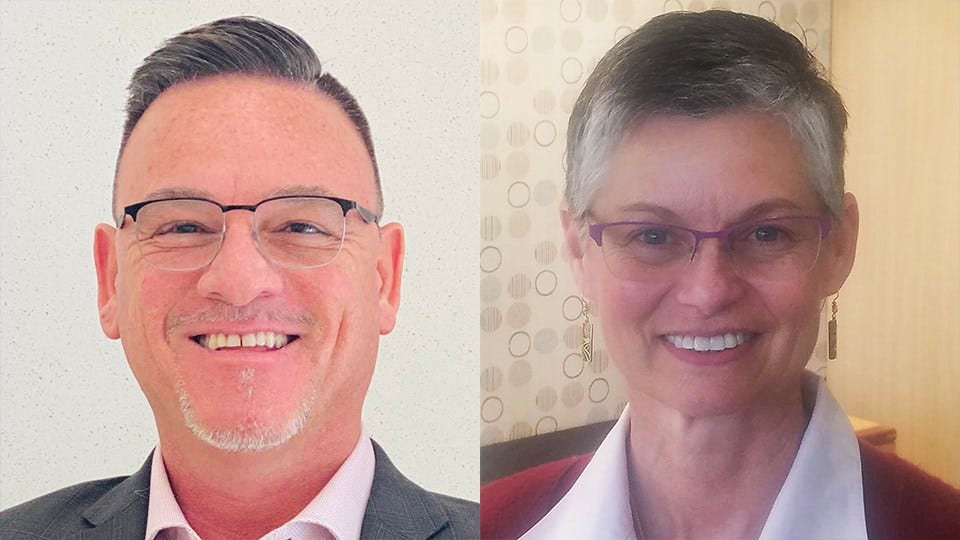A New Way of Thinking for Drug Addiction Recovery

Subscriber Benefit
As a subscriber you can listen to articles at work, in the car, or while you work out. Subscribe NowThe long war against drug addiction continues to rage, with the opioid crisis representing the latest front of the battle. As with any long fight, our strategy must change as the forces of death and destruction find new ways to attack those most vulnerable.
According to the Centers for Disease Control and Prevention, 68% of the 70,200 drug overdose deaths in 2017 involved an opioid – six times higher than in 1999. On average, 130 Americans die every day from an opioid overdose.
For those of us who have dedicated our lives to battling addiction, we have fought long and hard to change the perception of those with drug dependence as victims of a very real disease rather than simply as people who made bad choices – and often get in trouble with the law as a result.
More and more, those in law enforcement and the judicial system regard substance use disorder (SUD) as a medical, rather than strictly criminal issue. Drug courts in Central Indiana and beyond are increasingly assigning them to rehabilitation programs rather than prisons.
Now the thinking is evolving once again – to a more holistic, comprehensive approach that addresses all the challenges those with SUD face.
Instead of outpatient programs, the new model for long-term addiction rehabilitation is called residential recovery. In other words, we give those with SUD a safe, stable place to live while bringing all the tools they need to stay on the road to recovery right to their doorstep.
Progress House pioneered the idea of the recovery home in Indiana nearly 60 years ago. Founded by a group of men and women who had battled alcoholism, it has grown and changed with the years to provide a sober, secure and comfortable living environment with intensive recovery support services. The facilities near the heart of Downtown Indianapolis today serve up to 140 men with SUD, the oldest and largest such program in the state.
One thing we’ve learned in over a half-century of fighting addiction is that when people are exposed to their old neighborhoods and familiar patterns of behavior, the rate of relapse increases dramatically.
Now Progress House is joining forces with another nonprofit, Aspire Indiana Health, to take this idea to the next logical level: a Whole Health Recovery Center that combines the latest science-based innovations in addiction treatment with primary medical care, behavioral health, job training/placement, peer recovery support and more.
Instead of scattering the pieces of the addiction puzzle around and expecting people to find them, this model brings the solution to them while providing a home during their recovery journey. They would be able to stay in one place and receive all the services they need to return as stable, productive members of the community.
Progress House and Aspire are partnering on a 100-bed facility in Anderson that would become the first such “whole health” recovery center in the state of Indiana. It will be certified as both a Community Mental Health Center (CMHC) by the state and as a Federally Qualified Health Center (FQHC) by the U.S. government.
If approved by city officials, it could open next spring.
Instead of being assigned to a temporary home and having to travel to one place to see a doctor, another for mental health counseling, yet another for their peer recovery group meetings and still another to obtain their medication assisted treatment (MAT), all of these services would happen at a single facility.
Plus they would also receive case management, skills training/education, job placement, housing assistance and other programs to address social determinants of health that, when lacking, put people at risk of falling back into the throes of active addiction.
There is some precedent for residential recovery, but in the for-profit sector. Often located out-of-state at lavish getaways, these companies take only the wealthiest patients or those fortunate enough to have generous private insurance through their families or employers.
What is desperately needed is comprehensive recovery homes for at-risk Hoosiers delivered by not-for-profit providers who are focused on serving as part of Indiana’s social safety net, not turning a dollar. Fortunately, federal rules changed last year so that Medicaid is now eligible to pay for programs like this.
We think this idea represents the newest and best thinking on addiction recovery — one that should be replicated in other parts of the state. Our organizations have been talking to officials in other counties about establishing their own whole health recovery centers to serve constituents close to their homes and families.
Across the state of Indiana, elected officials, nonprofit providers, judges, law enforcement, community advocates and other stakeholders should begin conversations about establishing comprehensive recovery centers in their areas.
Addiction is not a war we can afford to lose.
